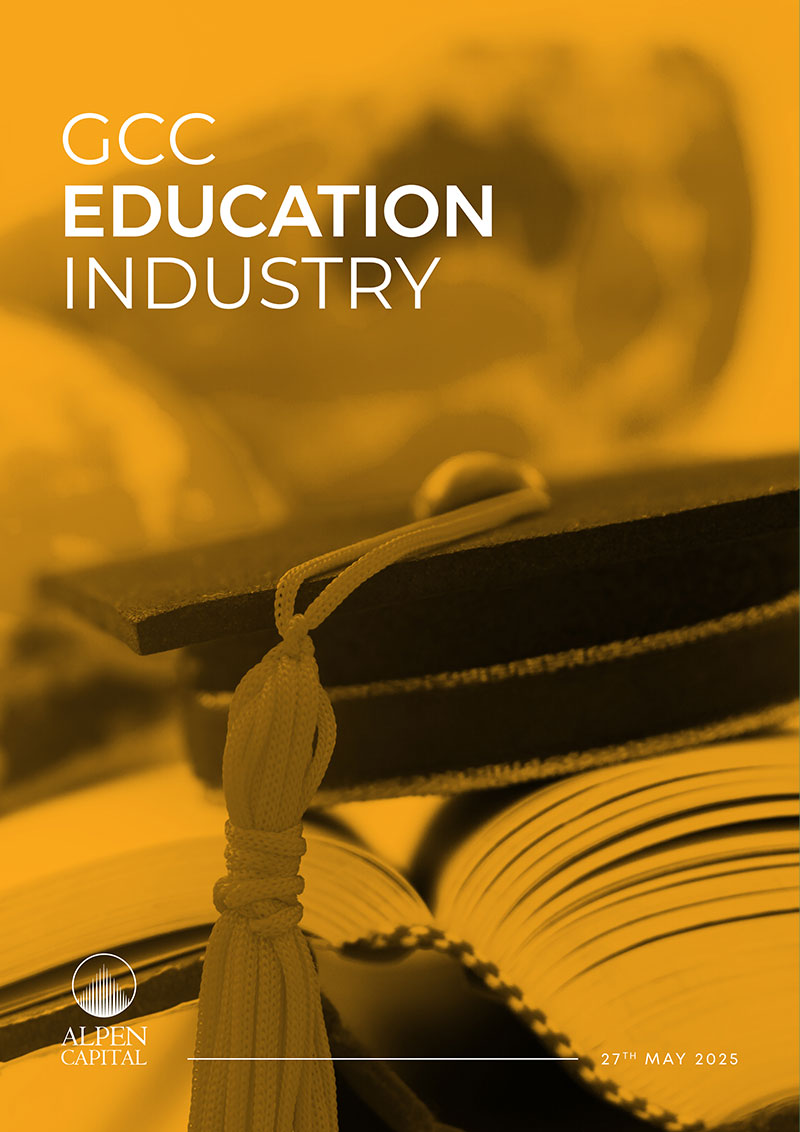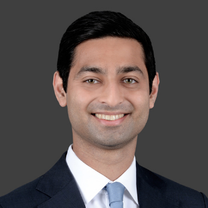The GCC’s higher education segment, particularly in Saudi Arabia and the UAE, is witnessing a wave
of transformation driven by increased investment, international partnerships and broader academic
offerings. As a result, the gross enrolment ratio (GER) in the GCC’s tertiary education segment
reached 67.6% in 2023, an improvement from 62.8% in 2018. Foreign universities are establishing
a stronger presence across the region, with governments actively fostering global collaboration and
enhancing institutional quality. Local universities are also improving their standards to align with
international benchmarks and increase enrolment numbers. Alpen Capital’s report on the GCC
Education Industry forecasts the tertiary education segment to grow at a compounded annual
growth rate (CAGR) of 2.1% between 2024 and 2029, with Saudi Arabia and UAE collectively
accounting for 80% of the projected rise in the number of students.
Strategic Advancement of the Higher Education Landscape
Over the past two decades, Saudi Arabia’s higher education landscape has expanded rapidly, with the
number of registered and licensed universities growing from just 8 in 2000 to 123 in 2024. These
institutions now offer 1,375 accredited undergraduate and graduate programs, reflecting the
Kingdom’s long-term strategic investment in higher learning. Alpen Capital projects the number of
students in the country’s tertiary segment to grow by 200,000 between 2024-2029 at a CAGR of
1.9%, with the GER crossing 75%. The Human Capability Development Program, launched as part
of Vision 2030, is expected to support the growth of the segment, alongside colleges and universities,
that aim to expand vocational training to meet the evolving labour market demands. Moreover, the
program also focuses on raising the global ranking of educational institutions and emphasizes on
aligning educational outputs with labour market needs.
Similar transformation has been witnessed in the UAE’s tertiary education segment. The expatriate
population, which accounts for approximately 88.5% of the total population is creating a demand for
higher education institutions that offer programs tailored to international students. Consequently, the
UAE is home to several internationally recognised institutions that are making their mark on the global
stage. The official inauguration of the Indian Institute of Technology Delhi campus in Abu Dhabi,
marked a significant milestone for the country. As per Alpen’s report, student enrolment in the
UAE’s tertiary segment is projected to grow at a CAGR of 2.2%, reaching 402,778 students and
a GER of 62.0% by 2029. An expanding youth population, rising affluence and supportive
government initiatives such as the National Strategy for Higher Education 2030 and the UAE
Centennial 2071 will play a key role in driving the forecasted growth.
Rising Privatisation and National Initiatives
Private investments are boosting the segment’s progress, with governments leveraging public-private
partnership (PPP) models to fund and operate educational facilities along with unlocking innovative
solutions to expand access and improve quality. In 2023, Saudi Arabia passed a new legislation
allowing foreign universities to establish branch campuses within the Kingdom. Since then, the
government has awarded foreign investor licenses to five international universities, enabling them to
set up local branch campuses. Furthermore, the InvestSaudi platform lists investment opportunities in
the education sector, spanning from early childhood education to specialised higher education
institutions.
To further support the development of the segment, both Saudi Arabia and the UAE have undertaken
targeted initiatives on training the future generation with the relevant practical and technical skills to
drive the economy. In November 2024, Saudi Arabia and the United States signed an MoU to
advance cooperation in higher education and research. The agreement focuses on student & faculty
exchange, development of innovative academic programs, and joint research initiatives. Similarly, the
UAE’s Ministry of Higher Education and Scientific Research introduced a new system in 2025 for
institutional licensure and programme accreditation to simplify processes and enhance the quality of
higher education.
Bharat Mansukhani, Chief Executive Officer of iSP Middle East & Asia notes that, “Aligning
educational outcomes with the future job market will be critical for GCC countries to unlock
the full potential of their young people and drive equitable and sustainable economic and
social growth.”
Investment Potential of a Growing Market
The tremendous activity within the GCC’s tertiary education market presents an array of investment
opportunities that focus on improving educational quality, expanding capacity, and streamlining
operations. The trends observed in Saudi Arabia and the UAE markets signal a broader regional
momentum in reshaping tertiary education, underpinned by a clear policy direction and a growing
demand for local and international qualifications. Both countries are not only enhancing the quality of
their academic institutions but are also aligning their education systems with future workforce needs.
As a result, the tertiary education sector has become a high-potential, sustainable investment
opportunity that supports broader socioeconomic development goals across the GCC.
 4 min
4 min





